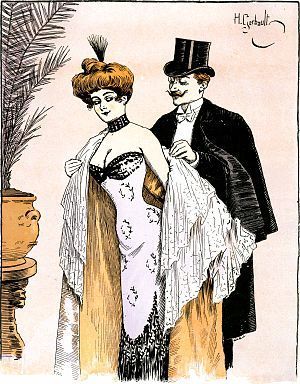Stuart's Daily Word Spot: Ambiguity or uncertainty?
 Image via Wikipedia
Image via WikipediaAmbiguity or uncertainty?Ambiguity: noun - hesitation, doubt or uncertainty aboutyour course; something that can be understood in more than one way; anuncertainty; double meaning; an expression having more than one meaning.
Uncertainty: noun - being uncertain; doubtfulness,hesitation or irresolution; a point of doubt; something of which the outcome isuncertain;
As you can see, these twowords are interchangeable in many cases. However, I'm concerned here with theirapplication to writing. An author can use ambiguity to express a dilemmaexperienced by a character. He can describe events, emotions and actions interms that leave the reader feeling uncertain. And both of these techniques arevalid. What a good writer will avoid, however, is the use of ambiguity toexcuse his own uncertainty about elements of his story or characterisation.Such ambiguity is quickly seen for the uncertainty it is in reality and areader thus alerted will then have difficulty in continuing to trust thehonesty of the writer. Once you've lost a reader's trust, you've almostcertainly lost a reader.So, if you're portrayingambiguity, make sure your own lack of resolution is not the cause and that youdisplay doubt in a way that makes it clear who or what is uncertain. Ambiguityis a subtle quality in writing and needs careful handling if it is to beunderstood for what it is.
'Martha's eyes grew softand wide every time she saw Harry, but her hands clenched into tight fists ashe approached.' Martha's feelings forHarry are ambiguous, but it is clear the writer intended this and there is nosign of uncertainty from the author.
'Brian was determined ashe drew the gun from the holster; this was the chance he'd dreamed of for solong. He pointed it through the gap in the fence, but, suddenly, he wonderedwhether he should actually kill his rival.' This displays moreuncertainty on the part of the writer than the potential killer. In particular,that give-away 'suddenly' suggests the author rather than the character isuncertain about what should happen. The first sentence makes it clear thecharacter is set on doing the deed and it is only in the second sentence thatthe writer has had some doubts about whether he should allow his character tokill at this time.
'Brian drew the gun fromits holster without hesitation and aimed it through the gap in the fence. Ashis intended victim wandered into view, and turned her face to him, hediscovered his hand was shaking.'Here it is the characterwho is uncertain and the writer has employed ambiguity to give more depth tothe story.
[image error]
Published on October 31, 2011 12:00
No comments have been added yet.



